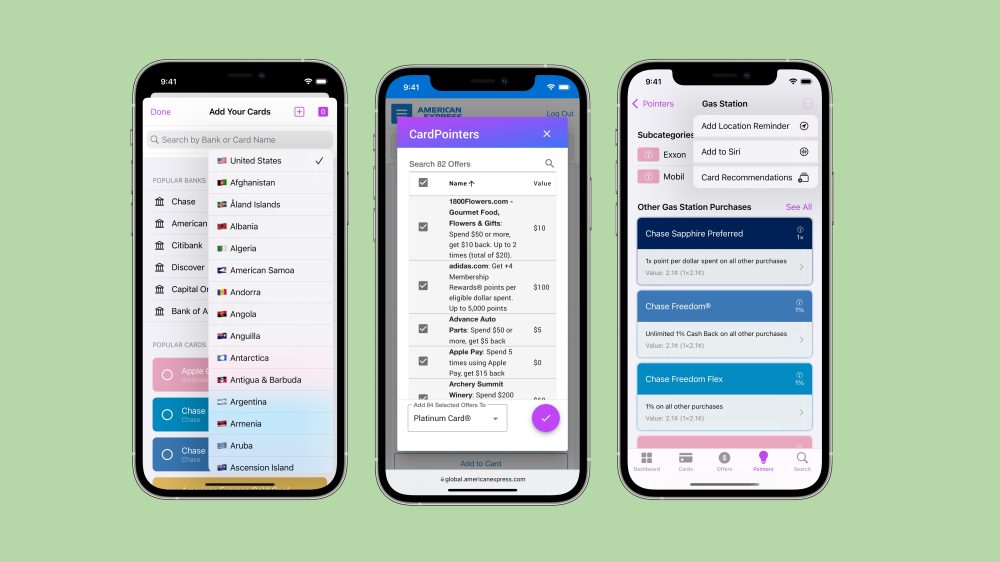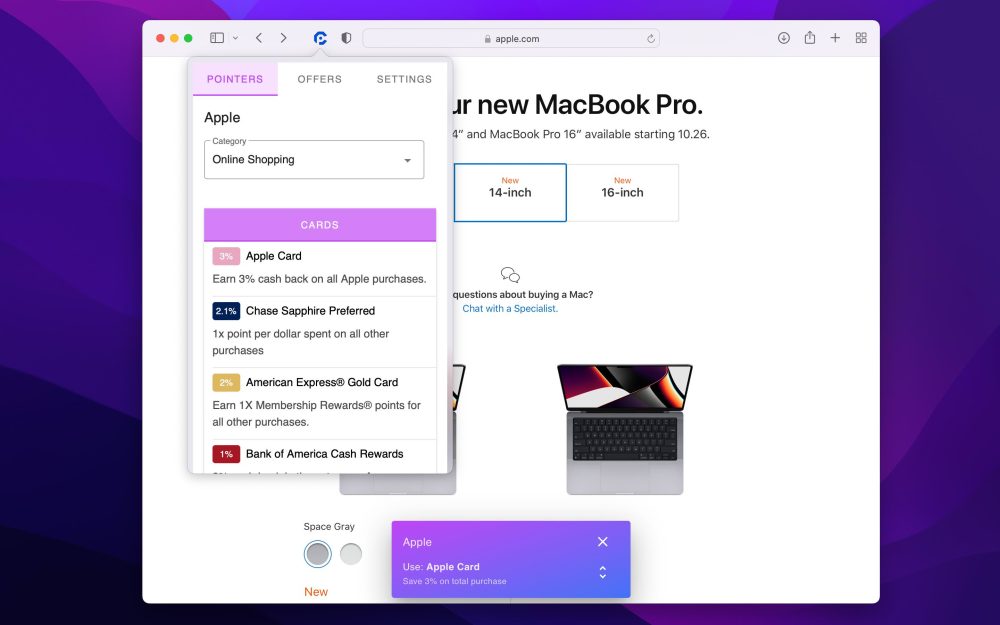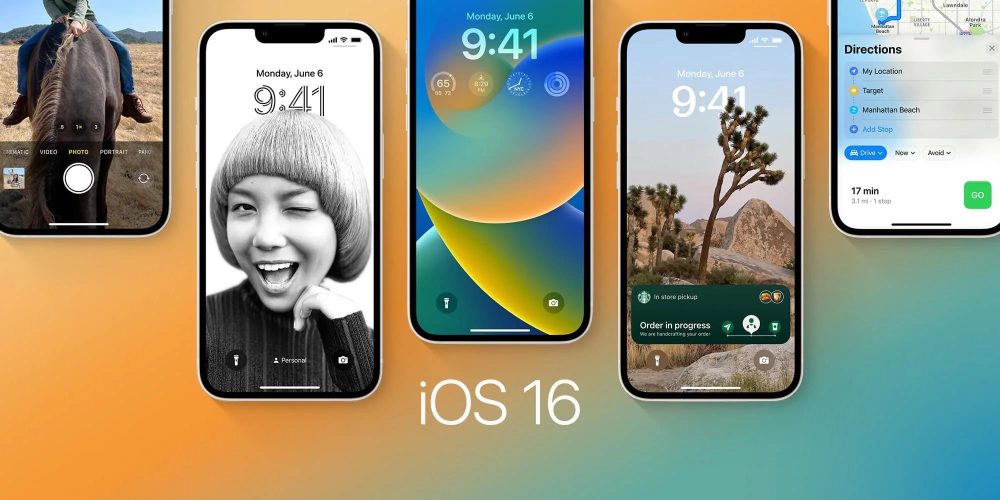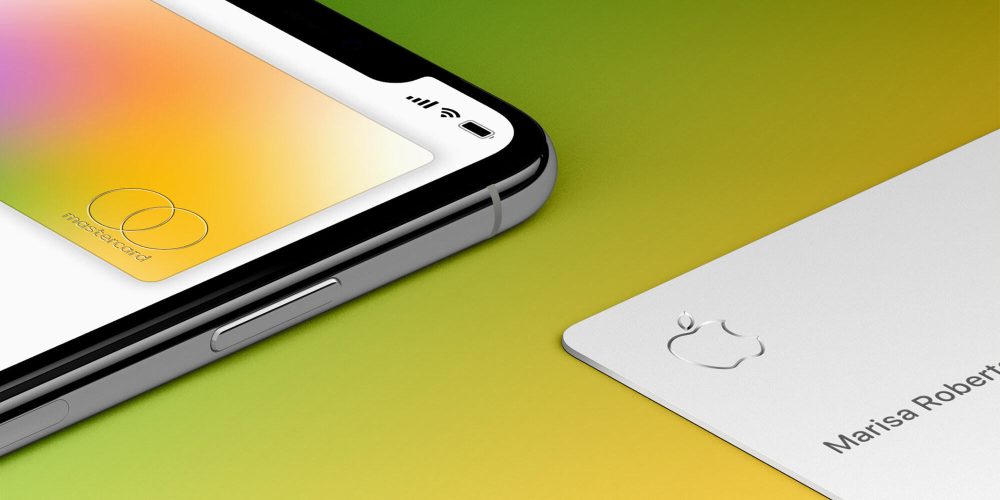
Over the last year, I’ve jumped deep into the world of credit card rewards, maximizing redemption values, collection points and cash back, and taking advantage of lucrative welcome bonuses. One of the apps that I’ve used to learn more about all of this is CardPointers, an excellent app from the indie developer Emmanuel Crouvisier.
I got a chance to talk to Crouvisier about CardPointers, iOS 16, what it’s’ like being a full-time indie developer in 2022, and much more. Plus, an exclusive discount and offer for 9to5Mac readers.
Hands-on: CardPointers can help maximize credit card rewards
The competition in the credit card industry has really heated up over the last several years. Companies including American Express, Chase, and Capital One have ramped up their offers with massive welcome bonuses, new redemption offers, lucrative spending and rewards categories, and much more.
Speaking from experience, this can be overwhelming and confusing at first. It’s easy to make mistakes; especially when card companies entice you to redeem for low redemption values. CardPointers aims to help you navigate all of these situations.
When you open CardPointers for the first time, you’ll be prompted to go through the process of adding the credit cards you already have. During this process, you can add the date that you were approved, adjust the bonus categories if needed, and view all of the available offers.
Inserting the date you were approved for a card is particularly important if the card has a welcome bonus or an annual fee. CardPointers can help you track your progress towards a welcome bonus and remind you when your annual fee is about to be charged.

The latter is especially important if you want to reach out to your card company and see if there are any retention offers available to help offset the annual fee. (Hint: There usually are, you just have to threaten to cancel/downgrade your card first.)
Once you’ve added your existing cards to CardPointers, you can tap on the “Pointers” tab to see a breakdown of the best cards to use for different categories of spending. These suggestions are based purely on the cards you already have. For instance, if you have the Amex Gold Card, you’ll likely see that it’s the best option for most restaurant and grocery store purchases.
The “Dashboard” tab in the CardPointers app breaks down additional information about the cards you have. This includes a list of your cards, the total of your annual fees, your active offers, and more details on the best cards for different categories of spending.
Finally, the “Dashboard” also includes a roundup of the best card offers for the month in terms of welcome bonuses. If you’re looking to expand your arsenal of credit cards, this is a very handy tool for seeing welcome bonuses for some of the top cards out there.
Safari Extension

One of my favorite aspects of CardPointers is the Safari Extension. The Safari Extension is available on iPhone, iPad, and Mac. It’s primary purpose to tell you the best credit card to use on a particular website to maximize the cash back or points you’ll receive for a purchase. For example, if you’re booking a hotel, the CardPointers extension will show you which of your cards offers the best rewards for that purchase.
Another excellent perk of the CardPointers extension for Safari is that it supports the ability to activate all of your available offers on the Chase and American Express websites.
When you visit Chase or American Express, you’ll see a CardPointers notification that quickly lets you enroll in your offers. Once you do, the offers will also sync to your CardPointers account and be factored into all of the suggestions and pointers.
CardPointers supports a number of different system features of iOS, macOS, and iPadOS. This includes things like App Clips, Sign in with Apple, Home Screen widgets, Quick Note, Siri integrations, and more. There’s also a dedicated Apple Watch app as well as apps for iPad and Mac.
You can get started with CardPointers through this link and get an exclusive 20% off for being a 9to5Mac reader.
iOS 16

I had the opportunity to speak with the developer of CardPointers, Emmanuel Crouvisier, this week. One thing I was specifically interested in was what he has planned for iOS 16 and Apple’s other new software releases coming this fall. His answer? Basically everything.
Crouvisier: The first day of WWDC I always think I’ll have only a few little things to incorporate into my app to help keep it feeling fresh, but by the time I’m done watching all of the pertinent session videos, I’ve got a to-do list of 100+ items. This year is no different.
- App Intents: These make creating new shortcuts *so* fast and easy for developers. I already had 5 shortcuts in the app, but with the ability to have one automatically enabled upon app install, it makes them so much more approachable for users who wouldn’t normally venture into the Shortcuts app. I’ve made some big updates to my “Which Card?” shortcut, and now a user can just say the name of a store, rather than just the type of purchase they’re making, and the app will instantly tell them which card to use there to maximize their points or use an Amex or Chase offer that they have there. It even works entirely with Siri, so if a user just has their AirPods in, they can use Hey Siri and know which card to use in a second without having to pull out their phone or check the watch app.
- Focus Filters: Apple finally got me to use Focus modes thanks to them, and I can’t imagine working any other way now. I’ve followed Apple’s lead here on implementation, and I’ve been using these during my Work focus to show only my business cards throughout the app, and I created a custom focus mode called Travel which I’ve set to filter out all of the cards with foreign exchange fees in the app so I don’t get surprised by a 3% added charge on my purchases when abroad. It’s a feature a lot of users have asked for, and integrating this via focus filters was a perfect fit.
- Lock Screen Widgets: I’ve had complications in the Watch app since v1, and widgets since they were available, and now I’ve got a new place to let users put the information that matters most to them. This will be a great spot to add a reminder about a special category bonus and expiring offers, and I’ll be exploring a few new ideas as well.
- Swift Charts: This is the most amazing API I’ve seen come out of Apple. In just a few lines of code you can get really beautiful charts with great accessibility features, yet it can do some really complex things with a few more lines; it’s a huge addition to SwiftUI. There are many applications for charts throughout the app which I’ve been wanting to do for a while, but didn’t want to build my own chart library. Problem solved!
Going indie
At the beginning of this year, Crouvisier made the decision to quit his full-time job at a startup and focus entirely on CardPointers. With the broader context of recent App Store changes, I asked him how his first six months of being full-time indie have gone.
Crouvisier: I think that’s the best decision I’ve ever made for myself! I’ve been working on CardPointers since 2019, and nearly the entire time I’ve also been working at a startup, which meant ~16 hour work days, sacrificing sleep to have time to work, no evenings or weekends to relax, and I definitely hit some unhealthy burnout periods, especially late summer preparing for iOS release days each year.
Since I quit the startup job and have been able to focus solely on CardPointers, literally everything in my life has improved: I’m sleeping well every day, I get to decompress (some) evenings and weekends (I’m still a bit of a workaholic), and CardPointers is doing better than ever — my first 2 months solely focused on the business I tripled revenue in 2 months by focusing on marketing the app and extension and growing the business, rather than just improving the app.
Apple’s Small Business Program has been great to save 15% on App Store sales, but I’ve found a lot of benefit in leveraging web checkout via Stripe and RevenueCat to save even more, and also stay under the Small Business maximum revenue limit for longer. From a user perspective, nothing beats the ease of an in-app purchase, besides a discounted price via Apple Pay through a web checkout flow. The two together work fantastically well to cover all types of users.
Apple Card

Finally, given his in-depth and unrivaled knowledge of the credit card industry and rewards, I asked Emmanuel for his thoughts on Apple Card. His advice? You’re probably better off with a different card.
Crouvisier: There are so many more advantages to a good rewards card, like a Chase Freedom, Sapphire Preferred, Citi Premier, or Amex Gold card. With those cards you can earn transferable points which you can transfer to airlines and hotels to get a lot more value out of the points that you earn — and their points multipliers for most categories are much higher than the Apple Card, too.
With the Apple Card the most you can get is 3% back on your purchase, whereas with the cards I’ve mentioned, you can get 5x back in points on some categories like restaurants, gas stations, etc, and those points are worth even more as you can redeem them for things like business class seats to Europe.
If someone spends $10,000 on their Apple Card in a year they’ll get back at most $300, whereas the same $10k spend on a good rewards card can earn them 50,000 points, and those points can be worth 4c or more with a good redemption, meaning the real value would be $2,000. Literally 7x more value out of using a good rewards card, and that’s what CardPointers helps users do — earn more from every purchase just by paying with the right card.
Even if you just want to focus on cash back, other cards can earn the same cash back as the Apple Card on even more categories and merchants. I’d love to see the Apple Card further improve their earnings categories, and more and more banks are doing deals directly with specific merchants as a form of advertising, so I think we’ll continue to see more of that across all cards as a new source of revenue for them.
Wrap up
CardPointers is available as a free download, with an in-app subscription available to unlock the CardPointers Pro features.
9to5Mac readers can save 20% on CardPointers Pro’s annual and lifetime plans. In fact, if you upgrade to the Lifetime plan with this link, you’ll also get a $100 Savings Card that effectively makes the upgrade free.
More developer interviews:
- Gentler Streak founder talks watchOS 9, importance of rest, transforming app into fitness hub
- Indie developer Aaron Pearce on HomeLog and solving HomeKit problems
Author: Chance Miller
Source: 9TO5Google



